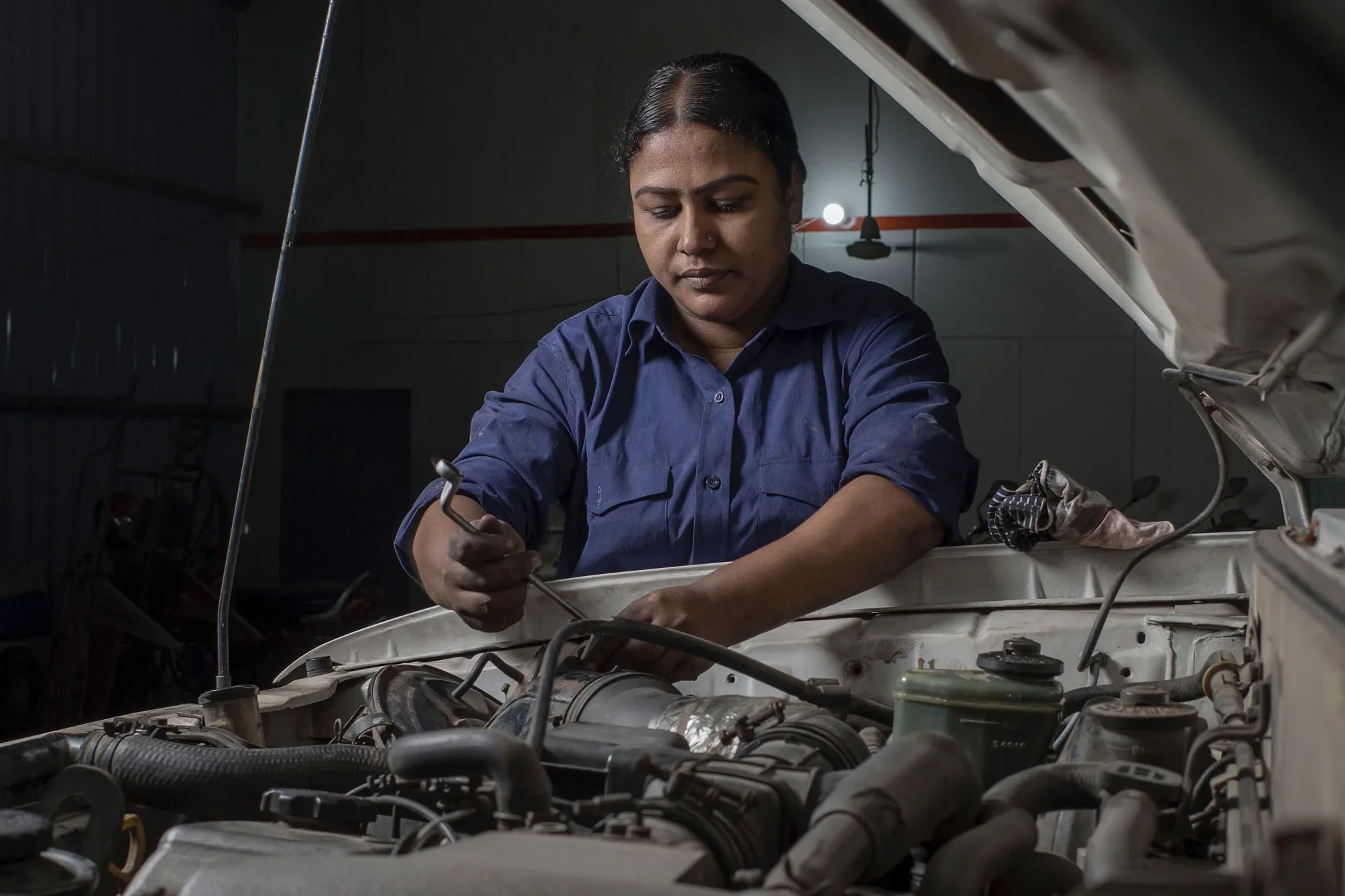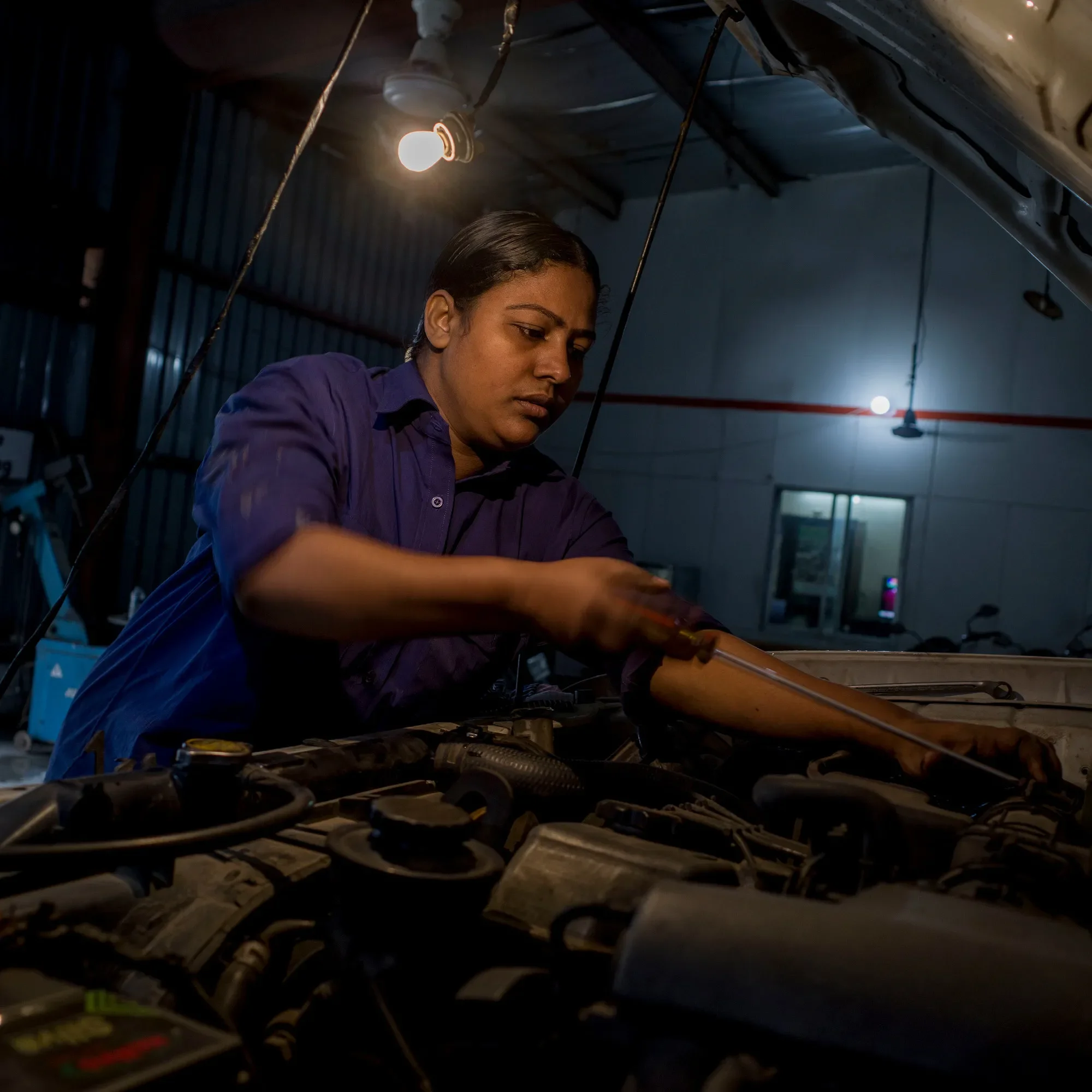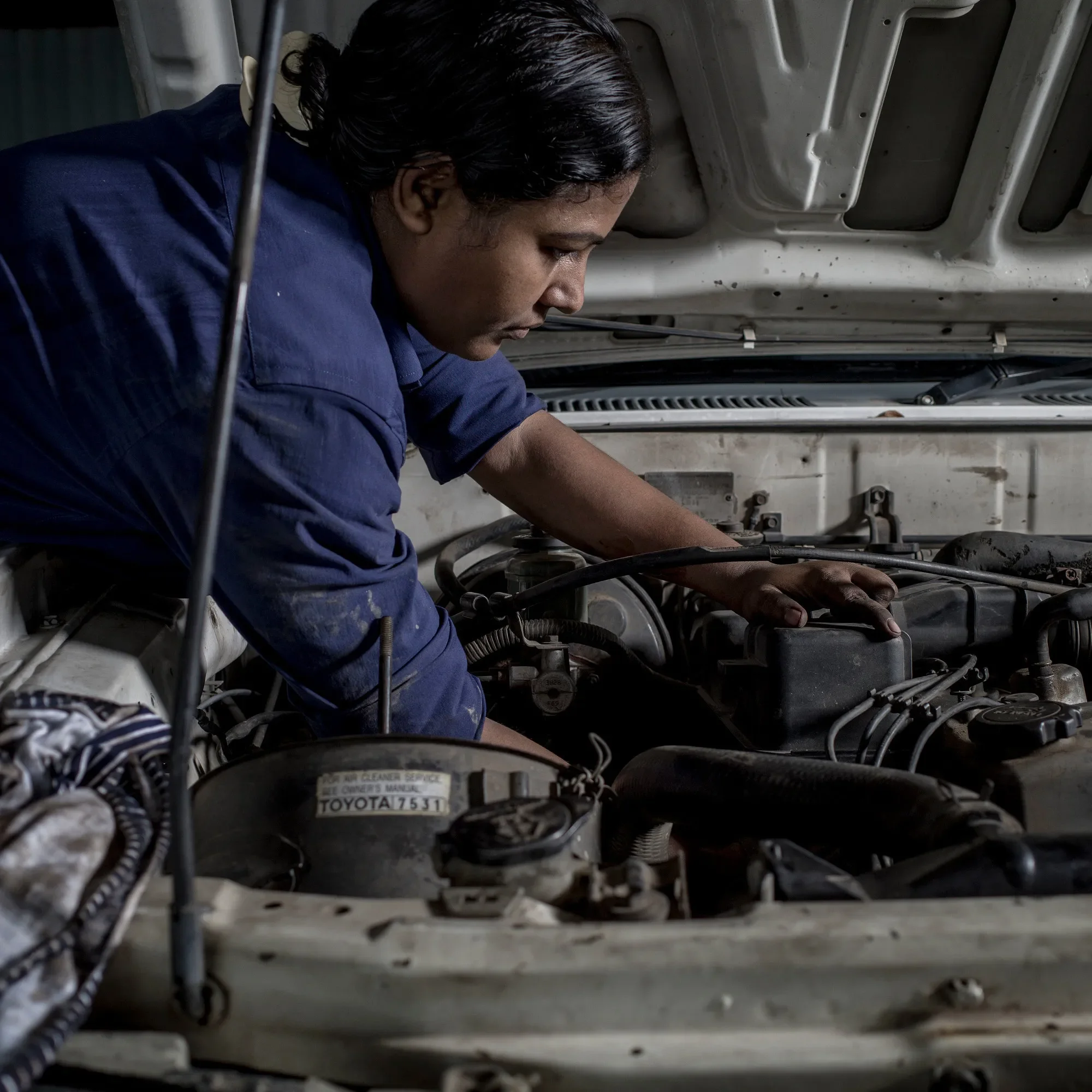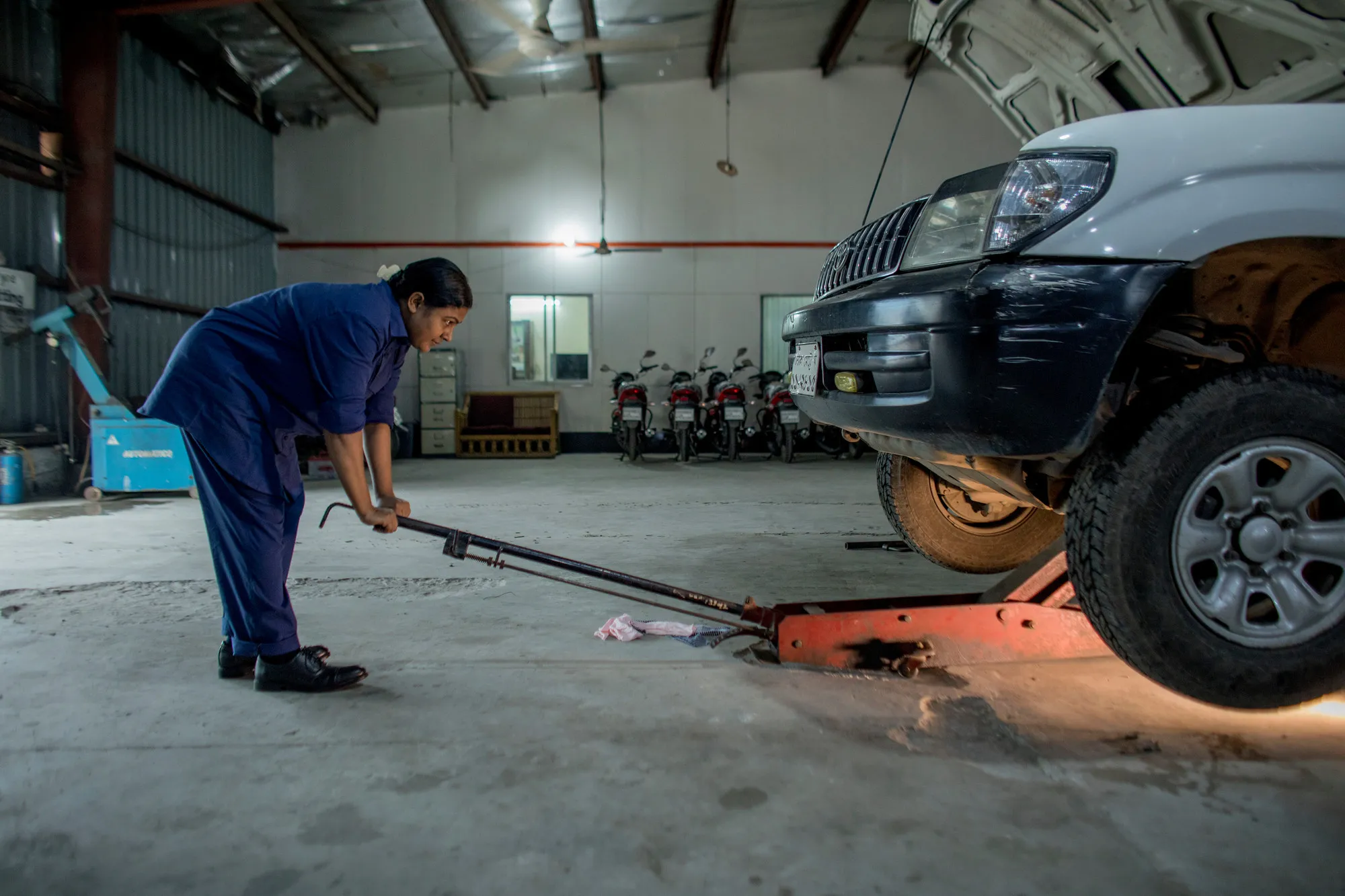Rabeya Sultana Rabbi is wearing navy scrubs spotted with grease stains. She rolls up her sleeves and steps on a stool, popping open the hood of a truck. She checks the oil and coolant and inspects for leaks.
With her nose ring and pinned-back long hair, Rabeya, 33, doesn’t look like the average car mechanic in Dhaka, Bangladesh. She has defied the norms, sometimes to her own surprise.
“I never dreamt as a child that I would fix vehicles,” she says. “I never saw any women working as mechanics, but I was different from other family members.”
In 2005, Rabeya heard about CARE Bangladesh’s skills training program for women. Participants could choose between receiving sewing training, which included a sewing machine to help them start their own business, or enrolling in a driving course and subsequently be offered a job as a driver — all as part of an initiative to support women in becoming financially independent.
“Hearing about driving, I thought, ‘I never drove and never saw a woman driving, so this is a great opportunity,’” she says.
Not everyone agreed. Rabeya’s in-laws told her that because she was married, there was no need for her to participate in this program. But she was determined. Rabeya convinced her husband to get his parents’ blessing and with that, she enrolled.




